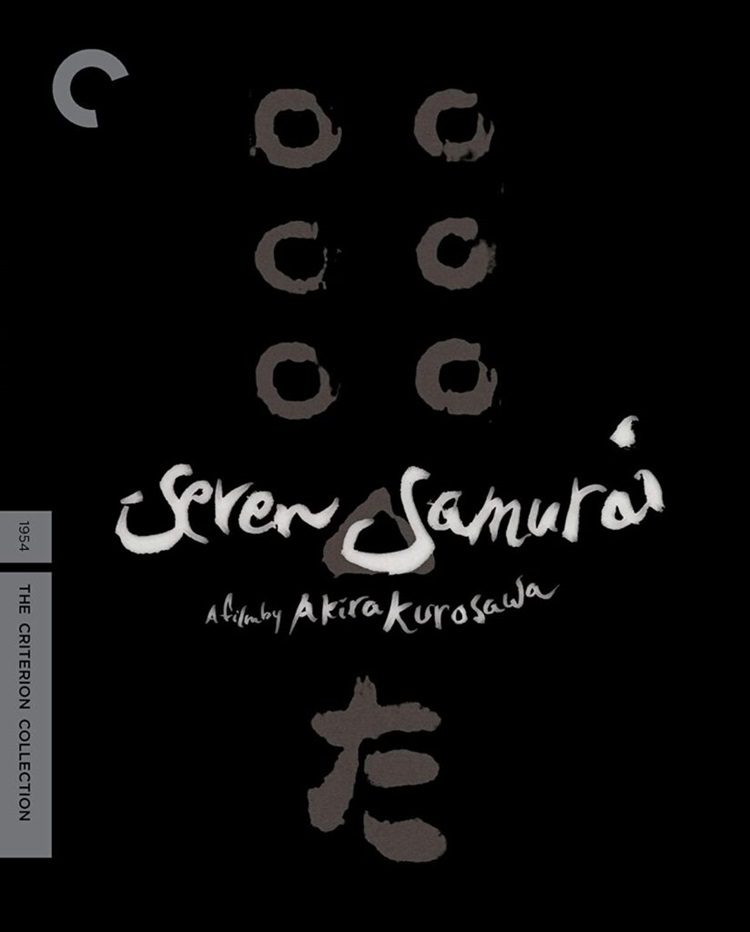
The premise of Seven Samurai is a simple one: a group of farmers hire seven samurai to deal with bandits harassing them. What develops from that is a cinematic masterpiece of epic proportions due to the talents of the cast and crew led by Akira Kurosawa.
Buy Seven Samurai Criterion Collection Blu-raySet during 16th century Japan, a group of farmers can no longer take having their harvests being stolen. It is determined that they need protection in the form of samurai, but some protest bringing the warriors to their village. A few men go to the city looking for help but with only food to offer in return for the services, they have trouble finding volunteers. They finally run across the noble Kambei (Takashi Shimura), who is introduced saving a young child taken hostage by a thief. Kambei agrees to help and rounds up a group of brave, talented samurai for the task. The villagers are at first scared upon their arrival but a bond of trust develops as they learn about each other and work together towards a common goal against a common enemy.
Kurosawa and his team do a marvelous job staging the battle sequences while he and his co-screenwriters Shinobu Hashimoto and Hideo Oguni tell a multi-layered story with unexpected results. The cast inhabits the characters well, making their plight engaging. Though its length of 207 minutes appears daunting, the film is well paced and doesn’t drag.
Seven Samurai has a universal appeal that not only made it an international success but also allowed it be reinterpreted. The plot transcends setting and genre and has been used many times, in a Western (The Magnificent Seven), science fiction (Battle Beyond the Stars), and also a comedy (Three Amigos). It’s not even restricted to species as evidenced by Pixar’s animated A Bug’s Life.
The video is presented with a 1080p/MPEG-4 AVC encoded transfer at an aspect ratio of 1.33:1. The brightly lit scenes, which are generally outdoors, look the best in terms of clarity, contrast, and range of the gray scale, while the dark sequences lost detail and sharpness. There’s also a tendency for objects to get lost within the shadows. Kurosawa chose to shoot with telephoto lenses, so the flatness is inherent. The print shows a good deal of damage and wear as slight scratches and dirt appear throughout. The grain is pervasive. Clarity is briefly lost during wipes.
The audio is available in the original mono and a 2.0 track. The mono is serviceable but not likely to wow viewers, especially when the scope of the film lends itself to a larger sound design. Fumio Hayasaka’s score is the better-sounding element within the mix. The dialogue is usually clear but on occasion can get muffled when blneded with music and effects. There’s a slight bit of hiss, but not enough to disrupt. I preferred the mono because the 2.0 track while louder is not necessarily better as it augments the flaws.
All supplementals are from the Criterion 2006 reissue of the film. There are two commentary tracks. One known as the “Scholars’ Roundtable” features David Desser, Joan Mellen, Stephen Prince, Tony Rayns, and Donald Richie. They were recorded individually in 2005 and 2006 and each commentator gets about 40 minutes. The other track presents Michael Jeck from 1988.
There’s a second disc of supplementals as well. As with other Kurosawa Criterion releases, there is a portion from the 2002 Toho Masterworks documentary Akira Kurosawa: It Is Wonderful To Create focusing on the creation of the film it accompanies (49 min). “My Life in Cinema: Akira Kurosawa” is an interview conducted by director Nagisa Oshima recorded in August 1993 for Japan’s Directors Guild covering Kurosawa’s life and career (116 min). It’s visually boring, offering either a two-shot or single close-ups the entire time, but it is a good extra for serious fans. “Seven Samurai: Origins and Influences” focuses on the role of the samurai in life and art up to Kurosawa’s masterpiece (55 min). There are also Trailers and Galleries.
A 40-page booklet also accompanies the set, containing essays by Kenneth Turan, Peter Cowie, Philip Kemp, Peggy Chiao, Alain Silver, Stuart Galbraith IV, Arthur Penn, and Sidney Lumet, and an interview with Toshiro Mifune from 1993.
A landmark in cinema, Seven Samurai influenced many films that followed. Criterion does a good job preserving it, the work done is listed in the booklet, and presenting it on Blu-ray. I highly recommend it.